Tax season is upon us, and we are here to provide you with the essential updates that have been released by the IRS regarding the 2024 tax year. The main updates are inflation adjustments to the marginal tax brackets, deductions, and applicable tax credits and exclusions. Each year the IRS adjusts many tax provisions to prevent taxpayers from being pushed into higher tax brackets due to inflation rather than real income increases.
Federal Marginal Tax Rates
For the 2024 tax year, the marginal tax rates remain the same at 10%, 12%, 22%, 24%, 32%, 35%, and 37%. The top marginal rate will apply to those with taxable income of $609,351 and above for single filers, and $731,201 and above for married couples filing jointly. The income ranges for those rates have been increased based on the Chained Consumer Price Index (C-CPI).
2024 Federal Income Tax Brackets for Single and Married Couples Filing Jointly
| Tax Rate | Single | Married Filing Jointly |
| 10% | $0 – $11,600 | $0 – $23,200 |
| 12% | $11,601 – $47,150 | $23,201 – $94,300 |
| 22% | $47,151 – $100,525 | $94,301 – $201,050 |
| 24% | $100,526 – $191,950 | $201,051 – $383,900 |
| 32% | $191,951 – $243,725 | $383,901 – $487,450 |
| 35% | $243,726 – $609,350 | $457,451 – $731,200 |
| 37% | $609,351 and above | $731,201 and above |
Capital Gains Tax Brackets
While the capital gains tax rates remain unchanged at 0%, 15%, and 20%, the income limits for the capital gains tax bracket were increased from 2023 to 2024.
2024 Capital Gains Tax Brackets
| Tax Rate | Single | Married Filing Jointly |
| 0% | $0 – $47,025 | $0 – $63,000 |
| 15% | $47,026 – $518,900 | $63,001 – $551,350 |
| 20% | $518,901 and above | $551,351 and above |
Standard Deduction
The standard deduction for married couples filing jointly will increase to $29,200, up $1,500 from 2023 to 2024. For single individuals, the standard deduction will increase to $14,600, up $750 from 2023. The standard deduction is a flat deduction available to eligible taxpayers who choose not to itemize their deductions.
Qualified Business Income Deduction
Stemming from the Tax Cuts and Jobs Act of 2017, certain qualifying businesses are allotted a 20 percent deduction for pass-through income, or Qualified Business Income (QBI). The phase out for QBI starts at $191,950 for single taxpayers and $383,900 for married couples filing jointly, up from $182,100 and $364,200 respectively in 2023.
Child Tax Credit
The Child Tax Credit is a partially refundable credit available for families with qualifying children under the age of 17 and income below $200,000 for single taxpayers and $400,000 for married couples filing jointly. The Child Tax Credit for 2024 is $2,000 per qualifying child. The refundable portion will be $1,700 per child, up from $1,600 per child in 2023.
Annual Gift Tax Exclusion
The amount eligible to be excluded from gift tax is increased to $18,000 per person from $17,000 in 2023. The exclusion for gifts to spouses who are not US citizens is increased to $185,000 from $175,000.
Alternative Minimum Tax Exemptions
The exemptions from Alternative Minimum Tax (AMT) increase to $87,500 for single taxpayers and $133,300 for married couples filing jointly. These exemptions are up from $81,300 and $126,500 respectively in 2023. The exemption phases out for AMTI up to $609,350 for single filers and $1,218,700 for married couples filing jointly.
The AMT is often misunderstood, as its provisions can be confusing. The AMT was created to limit certain tax benefits for high earning taxpayers. Essentially, high earning taxpayers are required to calculate their tax bill two times. Once under ordinary income tax calculations, and again using the parallel AMT calculation which uses an alternative taxable income definition called alternative minimum taxable income (AMTI). The AMT exemption prevents lower earning taxpayers from being subject to AMT. After the exemptions are applied, the AMT can be applied at either 26% or 28%. The 28% rate applies to AMTI above $232,600 in 2024.
Planning and Strategies
Now that you are armed with knowledge about the changes implemented by the IRS, you are ready to create a tax strategy that fits your situation. It’s important to seek professional advice when it comes to tax planning. Each tax situation is unique and requires specialized planning and attention. A team consisting of a qualified tax planner and a CPA can create a plan to make you as tax efficient as possible.
For more tax information, download our “2024 Important Numbers“
As we transition from 2023 to 2024, understanding the changes to marginal tax brackets, deductions, and applicable credits and exemptions will empower you to make informed decisions and optimize your tax planning opportunities. Contact BentOak Capital if you would like to discuss tax planning strategies and create a plan tailored to your situation in 2024.
Please remember to contact BentOak Capital (“BentOak”), in writing, if there are any changes in your personal/financial situation or investment objectives for the purpose of reviewing/evaluating/revising our previous recommendations and/or services, or if you want to impose, add, to modify any reasonable restrictions to our investment advisory services, or if you wish to direct that BentOak to effect any specific transactions for your account. A copy of our current written disclosure Brochure discussing our advisory services and fees continues to remain available upon request or at www.bentoakcapital.com.
This information is not intended to be a substitute for specific individualized tax advice. We suggest that you discuss your specific tax issues with a qualified tax advisor.
The opinions voiced in this material are for general information only and are not intended to provide specific advice or recommendations for any individual. All performance referenced is historical and is no guarantee of future results. All indices are unmanaged and may not be invested into directly.
Securities offered through LPL Financial, Member: FINRA/SIPC. Investment advice offered through BentOak Capital, a registered investment advisor and separate entity from LPL Financial.







